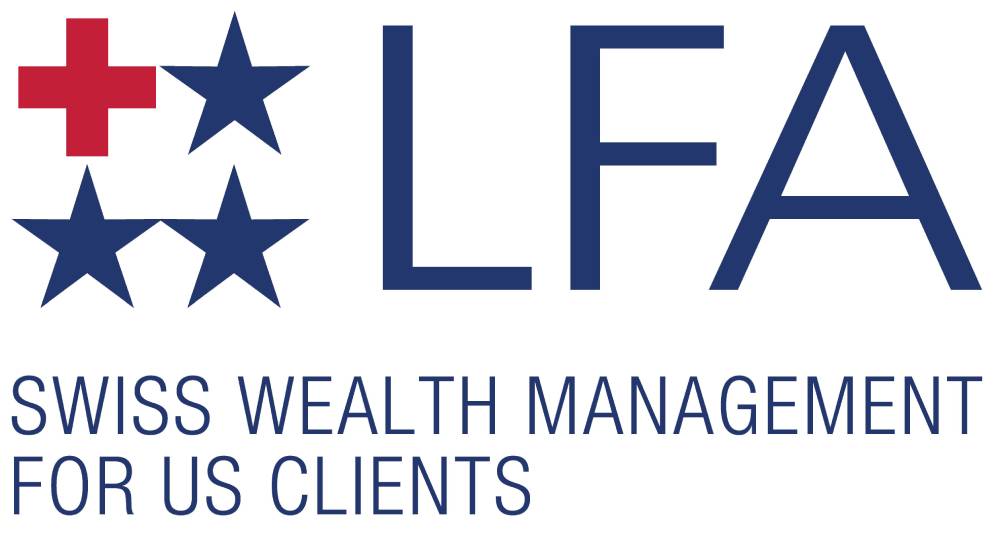As America’s first Secretary of the Treasury, Alexander Hamilton laid the foundation for the U.S. financial system. He believed that responsible borrowing and disciplined repayment could establish credibility and keep the young nation’s credit “immortal.”
More than 230 years later, Hamilton would likely be shocked by the state of U.S. debt and by what it means for you, as an investor, who relies on the long-term purchasing power of the dollar, especially when retirements can last 30 years or more.
By the end of 2025, the U.S. federal debt is expected to surpass $38 trillion, with the interest payments exceeding $1 trillion. The consequences are already visible: higher long-term interest rates, weaker fiscal credibility, and growing concerns that the dollar’s dominance could erode.
As someone who has accumulated significant wealth, these trends naturally raise an important question:
How and where can you invest part of your assets to increase diversification and minimize currency risk?
One way to diversify your wealth is through international investment exposure. At LFA, a Swiss-based wealth advisor, we specialize in helping U.S.-based investors develop wealth management strategies in Switzerland, utilizing the Swiss franc to reduce exposure to the volatility of the U.S. dollar.
Hamilton’s Warnings Still Echo
Hamilton argued that the greatest danger to governments was unchecked debt. He observed that a high percentage of citizens demand more spending on benefits while resisting higher taxes, a contradiction that almost guarantees fiscal instability. The result, he warned, is a rising debt burden that eventually becomes unsustainable.
While his solutions were straightforward, pairing borrowing with reliable tax revenue, today’s modern America has strayed somewhat from this logic. Politicians have found they can stay in power by using taxpayer dollars to support their voting blocs. Consequently, since the 1980s, the U.S. has regularly increased spending without matching revenue increases, leading to ballooning deficits.
What does this mean for you as an American investor? These dynamics don’t necessarily call for immediate alarm, but they do highlight the importance of thoughtful diversification:
- As global lenders scrutinize the U.S. fiscal outlook, shifts in credit conditions could influence interest rates and borrowing costs.
- A weaker dollar reduces the purchasing power of a dollar, which can affect lifestyle expenses, international purchases, and investment returns.
- If other nations diversify away from the dollar in their trade and reserve holdings, it may gradually reshape global markets and currency values, a key factor for international investors.
This is why many high-net-worth American families are now exploring strategies such as wealth management in Switzerland for part of their assets. They are opening Swiss bank accounts and considering increased international investment opportunities to help preserve and grow their wealth across increasingly volatile market conditions.
What It Means for U.S. Investors Today
As a high-income earner who may own your business, the national debt isn’t just a political talking point for you, as it may have potential consequences on your portfolios, tax liabilities, and global purchasing power. As U.S. creditors demand higher yields, the cost of borrowing increases across the economy. Mortgages, business loans, and even municipal financing may feel pressure.
A weaker dollar could means international purchases, from European real estate to overseas tuition, may become more expensive.
Alexander Hamilton consistently maintained that taxes and borrowing should move in tandem. Today, rising debt could result in higher future taxes for wealthy households. This is why investors are increasingly asking:
Could it be time to broaden diversification strategies beyond U.S. borders?
Switzerland’s Role in Wealth Diversification
Switzerland offers more than just a long, stable banking tradition. It provides a globally respected environment for asset protection, financial stability, and international diversification, which can influence investments and foreign exposure. What this may mean for you as a U.S. investor are several potential financial considerations:
- Holding part of your wealth in Swiss francs may help offset the potential decline in the purchasing power of the dollar. The franc has long been considered a “hard currency,” supported by a stable fiscal and monetary policy (including low inflation, moderate government debt, and fiscal discipline.
- Swiss wealth managers may offer access to global markets, alternative investments, and private investment opportunities that might not be readily available in domestic portfolios.
- Many of the top global companies are headquartered outside the U.S. Diversifying internationally may provide exposure to these markets.
- Switzerland’s independence and well-established regulatory frameworks are among the reasons it is often viewed as a reliable financial center.
At LFA, we may help you navigate the complexities of opening Swiss bank accounts, including compliance with IRS and FATCA regulations (Foreign Account Tax Compliance Act, a U.S. law enacted in 2010 to prevent tax evasion by U.S. taxpayers who hold financial assets overseas).
How to Diversify Wealth in Uncertain Times
Hamilton’s vision reminds us of the importance of trust and credibility in financial systems. When that credibility is perceived to weaken, you may want to consider proactive measures to help protect your financial interests:
- Global Asset Allocation: Concentrating wealth solely in U.S. markets may increase exposure to domestic fiscal policy risk. Allocating a portion internationally through equities, bonds, and alternative investments can contribute to a more balanced approach.
- Currency Hedging: Inflation and rising debt can impact the dollar’s purchasing power. By holding assets denominated in other strong currencies, such as the Swiss franc, investors may help protect purchasing power over time.
- Tax-Efficient Structures: With U.S. debt and interest payments climbing, some analysts anticipate that the tax rates could rise in the future. Working with advisors experienced in cross-border investing can help structure accounts and trusts in ways that account for these possibilities, while maintaining compliance with foreign and domestic regulations.
- Long-Term Partnerships: Hamilton built the U.S. system by prioritizing trust between government and creditors. Similarly, investors should seek long-term relationships with wealth managers who prioritize transparency, maintain fiduciary standards, and offer access to global investment resources.
Why LFA Should Be Your Swiss Wealth Advisor?
When it comes to international diversification for investing, experience, credibility, and trust matter; LFA is an independent Swiss wealth advisory firm that combines decades of industry expertise with the personal approach of a boutique practice.
Our team collaborates closely with U.S. clients seeking to diversify their wealth beyond domestic markets, while helping ensure compliance with applicable U.S. regulations. Our clients may benefit from the stability of Swiss banking, the flexibility of global investment opportunities, and the guidance of advisors who understand the unique requirements of U.S. citizens investing abroad, including compliance with all relevant IRS and FATCA regulations.
Connecting with us is easy. Whether you’re exploring how to help protect the purchasing power of your dollar-denominated investments, or are considering Swiss bank accounts for U.S. citizens, or simply want to learn how to diversify wealth more effectively, our advisors aim to make the process simple, accessible, and tailored to your current circumstances, tolerance for risk, and financial goals.
At a time when U.S. debt levels and interest payments are rising, some investors may benefit from working with a Swiss financial advisor who has experience in global investment strategies.
Partnering with LFA means more than just accessing Switzerland’s wealth management services; it provides the opportunity to work with a Swiss-based financial advisor firm experienced in helping U.S. clients navigate cross-border wealth planning.
Our approach is focused on building diversified, globally informed strategies that align with your long-term objectives and risk tolerance.


